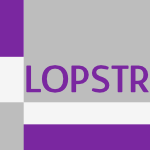44 papers:
 ECIR-2015-EfremovaGC #classification
ECIR-2015-EfremovaGC #classification- Classification of Historical Notary Acts with Noisy Labels (JE, AMG, TC), pp. 49–54.
 PPDP-2015-GallF #formal method #semantics
PPDP-2015-GallF #formal method #semantics- A refined operational semantics for ACT-R: investigating the relations between different ACT-R formalizations (DG, TWF), pp. 114–124.
 CSCW-2014-GanglbauerFSG #case study #community #network #social
CSCW-2014-GanglbauerFSG #case study #community #network #social- Think globally, act locally: a case study of a free food sharing community and social networking (EG, GF, ÖS, FG), pp. 911–921.
 CSCW-2014-HemphillR #how #twitter
CSCW-2014-HemphillR #how #twitter- Tweet acts: how constituents lobby congress via Twitter (LH, AJR), pp. 1200–1210.
 LOPSTR-2014-GallF #architecture #semantics
LOPSTR-2014-GallF #architecture #semantics- A Formal Semantics for the Cognitive Architecture ACT-R (DG, TWF), pp. 74–91.
 ICLP-J-2014-GallF #adaptation #implementation
ICLP-J-2014-GallF #adaptation #implementation- Exchanging Conflict Resolution in an Adaptable Implementation of ACT-R (DG, TWF), pp. 525–538.
 PODS-2013-AbiteboulV #collaboration #data-driven #workflow
PODS-2013-AbiteboulV #collaboration #data-driven #workflow- Collaborative data-driven workflows: think global, act local (SA, VV), pp. 91–102.
 DHM-HB-2013-WangTLCTL #architecture #behaviour #modelling
DHM-HB-2013-WangTLCTL #architecture #behaviour #modelling- Cognitive Behavior Modeling of Manual Rendezvous and Docking Based on the ACT-R Cognitive Architecture (CW, YT, YL, SC, ZT, JL), pp. 143–148.
 ICST-2013-LinD #concurrent #java
ICST-2013-LinD #concurrent #java- CHECK-THEN-ACT Misuse of Java Concurrent Collections (YL, DD), pp. 164–173.
 ICST-2013-YuLKK #combinator #generative #named #testing
ICST-2013-YuLKK #combinator #generative #named #testing- ACTS: A Combinatorial Test Generation Tool (LY, YL, RK, DRK), pp. 370–375.
 MSR-2012-BettenburgNH #fault #modelling #predict
MSR-2012-BettenburgNH #fault #modelling #predict- Think locally, act globally: Improving defect and effort prediction models (NB, MN, AEH), pp. 60–69.
 CHI-2012-TolmieBFBATFG #case study #experience #quote
CHI-2012-TolmieBFBATFG #case study #experience #quote- “Act natural”: instructions, compliance and accountability in ambulatory experiences (PT, SB, MF, PB, MA, NT, JRF, GG), pp. 1519–1528.
 CSCW-2012-MentisLTDRH
CSCW-2012-MentisLTDRH- Taking as an act of sharing (HMM, SEL, ST, PD, TR, RHRH), pp. 1091–1100.
 ICST-2012-BorazjanyYLKK #case study #combinator #testing
ICST-2012-BorazjanyYLKK #case study #combinator #testing- Combinatorial Testing of ACTS: A Case Study (MNB, LY, YL, RK, RK), pp. 591–600.
 CHI-2011-Gazan #community #interactive #social
CHI-2011-Gazan #community #interactive #social- Redesign as an act of violence: disrupted interaction patterns and the fragmenting of a social Q&A community (RG), pp. 2847–2856.
 KDIR-2011-ShaikhSW #classification #multi
KDIR-2011-ShaikhSW #classification #multi- Classification of Dialogue Acts in Urdu Multi-party Discourse (SS, TS, NW), pp. 406–412.
 ESEC-FSE-2011-TanejaGGX #privacy #testing
ESEC-FSE-2011-TanejaGGX #privacy #testing- Testing software in age of data privacy: a balancing act (KT, MG, RG, TX), pp. 201–211.
 CHI-2010-MedlerM #design #game studies
CHI-2010-MedlerM #design #game studies- The implications of improvisational acting and role-playing on design methodologies (BM, BM), pp. 483–492.
 ICEIS-HCI-2010-KralC #automation #corpus #web
ICEIS-HCI-2010-KralC #automation #corpus #web- Automatic Dialog Act Corpus Creation from Web Pages (PK, CC), pp. 198–203.
 RE-2010-MahauxHM #requirements
RE-2010-MahauxHM #requirements- Making It all Up: Getting in on the Act to Improvise Creative Requirements (MM, PH, NAMM), pp. 375–376.
 HCI-NIMT-2009-Alexandris #approach #editing #process
HCI-NIMT-2009-Alexandris #approach #editing #process- A Speech-Act Oriented Approach for User-Interactive Editing and Regulation Processes Applied in Written and Spoken Technical Texts (CA), pp. 645–653.
 HCI-IDU-2007-EktareY #security
HCI-IDU-2007-EktareY #security- The Balancing Act Between Computer Security and Convenience (ME, YY), pp. 731–735.
 RE-2007-KaragiannisMS
RE-2007-KaragiannisMS- Business Process-Based Regulation Compliance: The Case of the Sarbanes-Oxley Act (DK, JM, MS), pp. 315–321.
 ASE-2006-FalbRA #automation #design #interactive #specification #synthesis #user interface #using
ASE-2006-FalbRA #automation #design #interactive #specification #synthesis #user interface #using- Using communicative acts in interaction design specifications for automated synthesis of user interfaces (JF, TR, EA), pp. 261–264.
 ASE-2005-FalbPRJAK #automation #specification #synthesis #user interface #using
ASE-2005-FalbPRJAK #automation #specification #synthesis #user interface #using- Using communicative acts in high-level specifications of user interfaces for their automated synthesis (JF, RP, TR, HJ, EA, HK), pp. 429–430.
 ICEIS-v3-2005-Liang #analysis #information management #modelling #specification
ICEIS-v3-2005-Liang #analysis #information management #modelling #specification- Dialogue Act Modelling for Analysis and Specification of Web-Based Information Systems (YL), pp. 89–97.
 SIGIR-2005-CarvalhoC #classification #email #on the #speech
SIGIR-2005-CarvalhoC #classification #email #on the #speech- On the collective classification of email “speech acts” (VRdC, WWC), pp. 345–352.
 CBSE-2004-Jonkers #interface #specification
CBSE-2004-Jonkers #interface #specification- Interface Specification: A Balancing Act (Extended Abstract) (HBMJ), pp. 5–6.
 ICEIS-v3-2004-Tu #security #using
ICEIS-v3-2004-Tu #security #using- Using SAP System Configuration Security Test to Comply with Sarbanesoxley Act (JHT), pp. 581–583.
 ICEIS-v2-2003-MengYLCCH #corpus
ICEIS-v2-2003-MengYLCCH #corpus- Act E-Service Question Answering Systems Based on Faq Corpus (IHM, WPY, HYL, YLC, BC, SLH), pp. 286–293.
 WLC-2000-Saito
WLC-2000-Saito- Acts over Right, Left Regular Bands and Semilattices Types (TS), pp. 396–402.
 ICPR-v2-2000-BurrellP #algorithm #detection #learning #online #parametricity #probability #process
ICPR-v2-2000-BurrellP #algorithm #detection #learning #online #parametricity #probability #process- Sequential Algorithms for Detecting Changes in Acting Stochastic Processes and On-Line Learning of their Operational Parameters (AB, TPK), pp. 2656–2659.
 KR-2000-IsmailS #problem #reasoning
KR-2000-IsmailS #problem #reasoning- Two Problems with Reasoning and Acting in Time (HOI, SCS), pp. 355–365.
 ITiCSE-1999-Gerhardt-PowalsP #question
ITiCSE-1999-Gerhardt-PowalsP #question- The digital millennium copyright act: an international assault on fair use? (JGP, MHP), p. 191.
 KR-1998-LakemeyerL #logic #named
KR-1998-LakemeyerL #logic #named- AOL: A logic of Acting, Sensing, Knowing, and Only Knowing (GL, HJL), pp. 316–329.
 HCI-CC-1997-PaulD #concept #design #multi #privacy
HCI-CC-1997-PaulD #concept #design #multi #privacy- Privacy and Acting in Groups-Key Concepts in Designing Multimedia-Supported Cooperative Work (HP, SD), pp. 281–284.
 ICALP-1996-Senizergues #graph
ICALP-1996-Senizergues #graph- Semi-Groups Acting on Context-Free Graphs (GS), pp. 206–218.
 ICRE-1996-SaekiMSK #elicitation #requirements #speech
ICRE-1996-SaekiMSK #elicitation #requirements #speech- Structuring utterance records of requirements elicitation meetings based on speech act theory (MS, KM, JS, HK), pp. 21–30.
 HPDC-1996-Konchady #distributed #using
HPDC-1996-Konchady #distributed #using- Distributed Supercomputing Using ACTS (MK), pp. 172–181.
 CHI-1995-YankelovichLM #design #speech #user interface
CHI-1995-YankelovichLM #design #speech #user interface- Designing SpeechActs: Issues in Speech User Interfaces (NY, GAL, MM), pp. 369–376.
 CAiSE-1994-Johannesson #approach #communication #information management #representation #speech
CAiSE-1994-Johannesson #approach #communication #information management #representation #speech- Representation and Communication in Information Systems — A Speech Act Based Approach (PJ), pp. 200–213.
 CAiSE-1994-NellbornH #enterprise #information management #modelling #requirements #speech
CAiSE-1994-NellbornH #enterprise #information management #modelling #requirements #speech- Capturing Information Systems Requirements Through Enterprise and Speech Act Modelling (CN, PH), pp. 172–185.
 HCI-ACS-1993-InoueN #case study #recognition #sequence
HCI-ACS-1993-InoueN #case study #recognition #sequence- A Case Study of Plan Recognition: Command Sequences as Acts (YI, MN), pp. 392–397.
 ECOOP-1992-DodaniT #named #object-oriented #programming #type system
ECOOP-1992-DodaniT #named #object-oriented #programming #type system- ACTS: A Type System for Object-Oriented Programming Based on Abstract and Concrete Classes (MD, CST), pp. 309–328.
 ECIR-2015-EfremovaGC #classification
ECIR-2015-EfremovaGC #classification PPDP-2015-GallF #formal method #semantics
PPDP-2015-GallF #formal method #semantics CSCW-2014-GanglbauerFSG #case study #community #network #social
CSCW-2014-GanglbauerFSG #case study #community #network #social CSCW-2014-HemphillR #how #twitter
CSCW-2014-HemphillR #how #twitter LOPSTR-2014-GallF #architecture #semantics
LOPSTR-2014-GallF #architecture #semantics ICLP-J-2014-GallF #adaptation #implementation
ICLP-J-2014-GallF #adaptation #implementation PODS-2013-AbiteboulV #collaboration #data-driven #workflow
PODS-2013-AbiteboulV #collaboration #data-driven #workflow DHM-HB-2013-WangTLCTL #architecture #behaviour #modelling
DHM-HB-2013-WangTLCTL #architecture #behaviour #modelling ICST-2013-LinD #concurrent #java
ICST-2013-LinD #concurrent #java ICST-2013-YuLKK #combinator #generative #named #testing
ICST-2013-YuLKK #combinator #generative #named #testing MSR-2012-BettenburgNH #fault #modelling #predict
MSR-2012-BettenburgNH #fault #modelling #predict CHI-2012-TolmieBFBATFG #case study #experience #quote
CHI-2012-TolmieBFBATFG #case study #experience #quote CSCW-2012-MentisLTDRH
CSCW-2012-MentisLTDRH ICST-2012-BorazjanyYLKK #case study #combinator #testing
ICST-2012-BorazjanyYLKK #case study #combinator #testing CHI-2011-Gazan #community #interactive #social
CHI-2011-Gazan #community #interactive #social KDIR-2011-ShaikhSW #classification #multi
KDIR-2011-ShaikhSW #classification #multi ESEC-FSE-2011-TanejaGGX #privacy #testing
ESEC-FSE-2011-TanejaGGX #privacy #testing CHI-2010-MedlerM #design #game studies
CHI-2010-MedlerM #design #game studies ICEIS-HCI-2010-KralC #automation #corpus #web
ICEIS-HCI-2010-KralC #automation #corpus #web RE-2010-MahauxHM #requirements
RE-2010-MahauxHM #requirements HCI-NIMT-2009-Alexandris #approach #editing #process
HCI-NIMT-2009-Alexandris #approach #editing #process HCI-IDU-2007-EktareY #security
HCI-IDU-2007-EktareY #security RE-2007-KaragiannisMS
RE-2007-KaragiannisMS ASE-2006-FalbRA #automation #design #interactive #specification #synthesis #user interface #using
ASE-2006-FalbRA #automation #design #interactive #specification #synthesis #user interface #using ASE-2005-FalbPRJAK #automation #specification #synthesis #user interface #using
ASE-2005-FalbPRJAK #automation #specification #synthesis #user interface #using ICEIS-v3-2005-Liang #analysis #information management #modelling #specification
ICEIS-v3-2005-Liang #analysis #information management #modelling #specification SIGIR-2005-CarvalhoC #classification #email #on the #speech
SIGIR-2005-CarvalhoC #classification #email #on the #speech CBSE-2004-Jonkers #interface #specification
CBSE-2004-Jonkers #interface #specification ICEIS-v3-2004-Tu #security #using
ICEIS-v3-2004-Tu #security #using ICEIS-v2-2003-MengYLCCH #corpus
ICEIS-v2-2003-MengYLCCH #corpus WLC-2000-Saito
WLC-2000-Saito ICPR-v2-2000-BurrellP #algorithm #detection #learning #online #parametricity #probability #process
ICPR-v2-2000-BurrellP #algorithm #detection #learning #online #parametricity #probability #process KR-2000-IsmailS #problem #reasoning
KR-2000-IsmailS #problem #reasoning ITiCSE-1999-Gerhardt-PowalsP #question
ITiCSE-1999-Gerhardt-PowalsP #question KR-1998-LakemeyerL #logic #named
KR-1998-LakemeyerL #logic #named HCI-CC-1997-PaulD #concept #design #multi #privacy
HCI-CC-1997-PaulD #concept #design #multi #privacy ICALP-1996-Senizergues #graph
ICALP-1996-Senizergues #graph ICRE-1996-SaekiMSK #elicitation #requirements #speech
ICRE-1996-SaekiMSK #elicitation #requirements #speech HPDC-1996-Konchady #distributed #using
HPDC-1996-Konchady #distributed #using CHI-1995-YankelovichLM #design #speech #user interface
CHI-1995-YankelovichLM #design #speech #user interface CAiSE-1994-Johannesson #approach #communication #information management #representation #speech
CAiSE-1994-Johannesson #approach #communication #information management #representation #speech CAiSE-1994-NellbornH #enterprise #information management #modelling #requirements #speech
CAiSE-1994-NellbornH #enterprise #information management #modelling #requirements #speech HCI-ACS-1993-InoueN #case study #recognition #sequence
HCI-ACS-1993-InoueN #case study #recognition #sequence ECOOP-1992-DodaniT #named #object-oriented #programming #type system
ECOOP-1992-DodaniT #named #object-oriented #programming #type system









